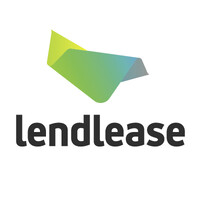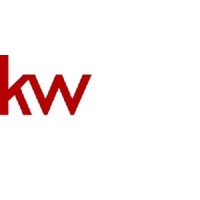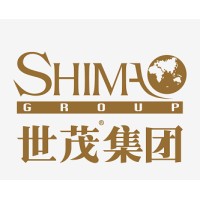
Avenue Living Company Cyber Security Posture
avenuelivingam.comAvenue Living is one of the largest private real estate owner-operators in Western Canada. Since 2006, Avenue Living has consolidated over $6 billion in assets under management across various asset classes, risk profiles, and primary/secondary markets in Canada and the United States. Our multi-family division has more than 17,000 doors throughout the North American Heartland. Our self-storage fund owns and operates 8 million square feet of self-storage space across North America. Our agriculture fund has expanded its acres under management to more than 83,000. Above all, we are an operations-first asset manager. Our selective investment approach aims to create long-term value, preserve capital, and drive compelling returns for investors through a variety of investment offerings. To date, Avenue Living is the proud steward of more than $2.5 billion in equity capital. Our experienced management team specializes in identifying and acquiring underperforming real estate assets. We then stabilize the assets through hands-on management and targeted value-add initiatives. Since 2006, we have built a significant portfolio of assets that aims to generate solid returns for our investors and provide safe, comfortable homes for our residents.
Avenue Living Company Details
avenue-living-asset-management
199 employees
9514
none
Real Estate
avenuelivingam.com
Scan still pending
AVE_2135624
In-progress
Between 200 and 800
This score is AI-generated and less favored by cyber insurers, who prefer the TPRM score.
 Avenue Living Global Score
Avenue Living Global Score.png)

Avenue Living Company Scoring based on AI Models
| Model Name | Date | Description | Current Score Difference | Score |
|---|---|---|---|---|
| AVERAGE-Industry | 03-12-2025 | This score represents the average cybersecurity rating of companies already scanned within the same industry. It provides a benchmark to compare an individual company's security posture against its industry peers. | N/A | Between 200 and 800 |
Avenue Living Company Cyber Security News & History
| Entity | Type | Severity | Impact | Seen | Url ID | Details | View |
|---|---|---|---|---|---|---|---|
| Avenue Living Asset Management | Breach | 60 | 3 | 05/2018 | AVE231830622 | Link | |
Rankiteo Explanation : Attack with significant impact with internal employee data leaksDescription: A company operating apartment buildings in several Alberta communities, including Lethbridge, Medicine Hat and Red Deer had a privacy breach. Tenants’ personal information was stolen and sold for criminal purposes. Calgary Police began conducting a criminal investigation concerning the fraudulent use of personal information to apply for credit cards. It was determined an employee accessed the organization’s server after hours using a personal device. The information which was stolen included names, birth dates, social insurance numbers, email addresses and signatures. The documentation was then sold and used to fraudulently purchase credit cards. It’s believed around 30 people have been directly impacted, but more people could potentially be affected. | |||||||
Avenue Living Company Subsidiaries

Avenue Living is one of the largest private real estate owner-operators in Western Canada. Since 2006, Avenue Living has consolidated over $6 billion in assets under management across various asset classes, risk profiles, and primary/secondary markets in Canada and the United States. Our multi-family division has more than 17,000 doors throughout the North American Heartland. Our self-storage fund owns and operates 8 million square feet of self-storage space across North America. Our agriculture fund has expanded its acres under management to more than 83,000. Above all, we are an operations-first asset manager. Our selective investment approach aims to create long-term value, preserve capital, and drive compelling returns for investors through a variety of investment offerings. To date, Avenue Living is the proud steward of more than $2.5 billion in equity capital. Our experienced management team specializes in identifying and acquiring underperforming real estate assets. We then stabilize the assets through hands-on management and targeted value-add initiatives. Since 2006, we have built a significant portfolio of assets that aims to generate solid returns for our investors and provide safe, comfortable homes for our residents.
Access Data Using Our API

Get company history
.png)
Avenue Living Cyber Security News
Immunity Evasion: Defeating Security with Active Measures & Long-Lived Domains
Starting in Q1 2025, Cofense Intelligence detected a unique tactic combination for bypassing secure email gateways (SEGs).
“You can ruin people’s lives” - Cybersecurity expert weighs in on deepfakes of students
Most common AI applications, such as ChatGPT, have restrictions that prevent users from creating AI images or videos of real people, also known ...
Protect Your Digital Life: Essential Tips for Device Security
The Department of Information Technology has compiled a list of key tips to help secure your devices from potential threats.
UCF Students Host Live Cyberattack Simulation Contest
Horse Plinko, a live cyberattack-simulation contest named after a meme of a horse falling through a plinko board, has exploded in popularity since its ...
Trump inauguration puts security officials on high alert in Washington
The inauguration follows a campaign marked by two attempts on Trump's life.
Cybersecurity Alert: Major Breaches at TikTok and Ticketmaster
A major TikTok breach claims 428M user records are for sale, raising security alarms. Stay informed & secure your data today!
Questions federal employees should be asking before accepting ‘deferred resignation’
Federal employees should only consult with human resources personnel, benefits personnel, legal counsel and financial advisors before making a final decision.
Sextortion Scams Now Include Photos of Your Home
The message purports to have been sent from a hacker who's compromised your computer and used your webcam to record a video of you while you ...
Trump Administration Highlights: Trump Vows to Defund PBS and NPR
President Trump has looked to end protections under the program as he seeks to make good on his campaign promise to deport millions of ...

Avenue Living Similar Companies

SM Prime Holdings, Inc.
SM Prime Holdings, Inc. (SMPH) is one of the largest integrated property developers in Southeast Asia that offers innovative and sustainable lifestyle cities with the development of malls, residences, offices, hotels and convention centers. It is also the largest, in terms of asset, in the Philippin

Lendlease
Lendlease is Australia’s leading real estate business with an international investments platform. We’re city shapers, asset creators and trusted partners. Our deep property experience and bold thinking delivers innovative real estate and investment solutions. Very few organisations can build cit

Forsythe Appraisals
Forsythe Appraisals is part of First American Mortgage Solutions. Established in 1940, Forsythe Appraisals is the oldest and largest staff appraisal company in the United States. With branch offices covering more than 40 metropolitan markets around the country, Forsythe Appraisals’ unique national

Keller Williams Ann Arbor Market Center
Keller Williams Realty is the largest real estate company, by agent count, in the United States. Headquartered in Austin, TX. KW has locations throughout the US and in many international Countries. In Ann Arbor, KW is one of the largest real estate agencies serving Washtenaw County and all of S

Keller Williams Colombia
Hemos creado este canal de comunicación con el fin de llevar los sistemas, modelos y valores de nuestra empresa para empezar a cambiar vidas. Colombia carece de un sistema formal de hacer negocios de bienes raíces, por eso, nuestro objetivo es ayudar a crear un ambiente de profesionalismo, bas

Shimao Group
Shimao Group has entered the real estate industry since 1989, After more than 30 years of development, the Group has made its layout in more than 100 core development cities across China, involving real estate, commercial, property management, hotel, theme entertainment and culture. Following the n

Frequently Asked Questions (FAQ) on Cybersecurity Incidents
Avenue Living CyberSecurity History Information
Total Incidents: According to Rankiteo, Avenue Living has faced 1 incidents in the past.
Incident Types: The types of cybersecurity incidents that have occurred include ['Breach'].
Total Financial Loss: The total financial loss from these incidents is estimated to be {total_financial_loss}.
Cybersecurity Posture: The company's overall cybersecurity posture is described as Avenue Living is one of the largest private real estate owner-operators in Western Canada. Since 2006, Avenue Living has consolidated over $6 billion in assets under management across various asset classes, risk profiles, and primary/secondary markets in Canada and the United States. Our multi-family division has more than 17,000 doors throughout the North American Heartland. Our self-storage fund owns and operates 8 million square feet of self-storage space across North America. Our agriculture fund has expanded its acres under management to more than 83,000. Above all, we are an operations-first asset manager. Our selective investment approach aims to create long-term value, preserve capital, and drive compelling returns for investors through a variety of investment offerings. To date, Avenue Living is the proud steward of more than $2.5 billion in equity capital. Our experienced management team specializes in identifying and acquiring underperforming real estate assets. We then stabilize the assets through hands-on management and targeted value-add initiatives. Since 2006, we have built a significant portfolio of assets that aims to generate solid returns for our investors and provide safe, comfortable homes for our residents..
Detection and Response: The company detects and responds to cybersecurity incidents through {description_of_detection_and_response_process}.
Incident Details
Incident 1: Ransomware Attack
Title: {Incident_Title}
Description: {Brief_description_of_the_incident}
Date Detected: {Detection_Date}
Date Publicly Disclosed: {Disclosure_Date}
Date Resolved: {Resolution_Date}
Type: {Type_of_Attack}
Attack Vector: {Attack_Vector}
Vulnerability Exploited: {Vulnerability}
Threat Actor: {Threat_Actor}
Motivation: {Motivation}
Incident 2: Data Breach
Title: {Incident_Title}
Description: {Brief_description_of_the_incident}
Date Detected: {Detection_Date}
Date Publicly Disclosed: {Disclosure_Date}
Date Resolved: {Resolution_Date}
Type: {Type_of_Attack}
Attack Vector: {Attack_Vector}
Vulnerability Exploited: {Vulnerability}
Threat Actor: {Threat_Actor}
Motivation: {Motivation}
Common Attack Types: As of now, the company has not encountered any reported incidents involving common cyberattacks.
Identification of Attack Vectors: The company identifies the attack vectors used in incidents through {description_of_identification_process}.
Impact of the Incidents
Incident 1: Ransomware Attack
Financial Loss: {Financial_Loss}
Data Compromised: {Data_Compromised}
Systems Affected: {Systems_Affected}
Downtime: {Downtime}
Operational Impact: {Operational_Impact}
Conversion Rate Impact: {Conversion_Rate_Impact}
Revenue Loss: {Revenue_Loss}
Customer Complaints: {Customer_Complaints}
Brand Reputation Impact: {Brand_Reputation_Impact}
Legal Liabilities: {Legal_Liabilities}
Identity Theft Risk: {Identity_Theft_Risk}
Payment Information Risk: {Payment_Information_Risk}
Incident 2: Data Breach
Financial Loss: {Financial_Loss}
Data Compromised: {Data_Compromised}
Systems Affected: {Systems_Affected}
Downtime: {Downtime}
Operational Impact: {Operational_Impact}
Conversion Rate Impact: {Conversion_Rate_Impact}
Revenue Loss: {Revenue_Loss}
Customer Complaints: {Customer_Complaints}
Brand Reputation Impact: {Brand_Reputation_Impact}
Legal Liabilities: {Legal_Liabilities}
Identity Theft Risk: {Identity_Theft_Risk}
Payment Information Risk: {Payment_Information_Risk}
Average Financial Loss: The average financial loss per incident is {average_financial_loss}.
Commonly Compromised Data Types: The types of data most commonly compromised in incidents are {list_of_commonly_compromised_data_types}.
Incident 1: Ransomware Attack
Entity Name: {Entity_Name}
Entity Type: {Entity_Type}
Industry: {Industry}
Location: {Location}
Size: {Size}
Customers Affected: {Customers_Affected}
Incident 2: Data Breach
Entity Name: {Entity_Name}
Entity Type: {Entity_Type}
Industry: {Industry}
Location: {Location}
Size: {Size}
Customers Affected: {Customers_Affected}
Response to the Incidents
Incident 1: Ransomware Attack
Incident Response Plan Activated: {Yes/No}
Third Party Assistance: {Yes/No}
Law Enforcement Notified: {Yes/No}
Containment Measures: {Containment_Measures}
Remediation Measures: {Remediation_Measures}
Recovery Measures: {Recovery_Measures}
Communication Strategy: {Communication_Strategy}
Adaptive Behavioral WAF: {Adaptive_Behavioral_WAF}
On-Demand Scrubbing Services: {On_Demand_Scrubbing_Services}
Network Segmentation: {Network_Segmentation}
Enhanced Monitoring: {Enhanced_Monitoring}
Incident 2: Data Breach
Incident Response Plan Activated: {Yes/No}
Third Party Assistance: {Yes/No}
Law Enforcement Notified: {Yes/No}
Containment Measures: {Containment_Measures}
Remediation Measures: {Remediation_Measures}
Recovery Measures: {Recovery_Measures}
Communication Strategy: {Communication_Strategy}
Adaptive Behavioral WAF: {Adaptive_Behavioral_WAF}
On-Demand Scrubbing Services: {On_Demand_Scrubbing_Services}
Network Segmentation: {Network_Segmentation}
Enhanced Monitoring: {Enhanced_Monitoring}
Incident Response Plan: The company's incident response plan is described as {description_of_incident_response_plan}.
Third-Party Assistance: The company involves third-party assistance in incident response through {description_of_third_party_involvement}.
Data Breach Information
Incident 2: Data Breach
Type of Data Compromised: {Type_of_Data}
Number of Records Exposed: {Number_of_Records}
Sensitivity of Data: {Sensitivity_of_Data}
Data Exfiltration: {Yes/No}
Data Encryption: {Yes/No}
File Types Exposed: {File_Types}
Personally Identifiable Information: {Yes/No}
Prevention of Data Exfiltration: The company takes the following measures to prevent data exfiltration: {description_of_prevention_measures}.
Handling of PII Incidents: The company handles incidents involving personally identifiable information (PII) through {description_of_handling_process}.
Ransomware Information
Incident 1: Ransomware Attack
Ransom Demanded: {Ransom_Amount}
Ransom Paid: {Ransom_Paid}
Ransomware Strain: {Ransomware_Strain}
Data Encryption: {Yes/No}
Data Exfiltration: {Yes/No}
Ransom Payment Policy: The company's policy on paying ransoms in ransomware incidents is described as {description_of_ransom_payment_policy}.
Data Recovery from Ransomware: The company recovers data encrypted by ransomware through {description_of_data_recovery_process}.
Regulatory Compliance
Incident 1: Ransomware Attack
Regulations Violated: {Regulations_Violated}
Fines Imposed: {Fines_Imposed}
Legal Actions: {Legal_Actions}
Regulatory Notifications: {Regulatory_Notifications}
Incident 2: Data Breach
Regulations Violated: {Regulations_Violated}
Fines Imposed: {Fines_Imposed}
Legal Actions: {Legal_Actions}
Regulatory Notifications: {Regulatory_Notifications}
Regulatory Frameworks: The company complies with the following regulatory frameworks regarding cybersecurity: {list_of_regulatory_frameworks}.
Ensuring Regulatory Compliance: The company ensures compliance with regulatory requirements through {description_of_compliance_measures}.
Lessons Learned and Recommendations
Incident 1: Ransomware Attack
Lessons Learned: {Lessons_Learned}
Incident 2: Data Breach
Lessons Learned: {Lessons_Learned}
Incident 1: Ransomware Attack
Recommendations: {Recommendations}
Incident 2: Data Breach
Recommendations: {Recommendations}
Key Lessons Learned: The key lessons learned from past incidents are {list_of_key_lessons_learned}.
Implemented Recommendations: The company has implemented the following recommendations to improve cybersecurity: {list_of_implemented_recommendations}.
References
Additional Resources: Stakeholders can find additional resources on cybersecurity best practices at {list_of_additional_resources}.
Investigation Status
Incident 1: Ransomware Attack
Investigation Status: {Investigation_Status}
Incident 2: Data Breach
Investigation Status: {Investigation_Status}
Communication of Investigation Status: The company communicates the status of incident investigations to stakeholders through {description_of_communication_process}.
Stakeholder and Customer Advisories
Incident 1: Ransomware Attack
Stakeholder Advisories: {Stakeholder_Advisories}
Customer Advisories: {Customer_Advisories}
Incident 2: Data Breach
Stakeholder Advisories: {Stakeholder_Advisories}
Customer Advisories: {Customer_Advisories}
Advisories Provided: The company provides the following advisories to stakeholders and customers following an incident: {description_of_advisories_provided}.
Initial Access Broker
Incident 1: Ransomware Attack
Entry Point: {Entry_Point}
Reconnaissance Period: {Reconnaissance_Period}
Backdoors Established: {Backdoors_Established}
High Value Targets: {High_Value_Targets}
Data Sold on Dark Web: {Yes/No}
Incident 2: Data Breach
Entry Point: {Entry_Point}
Reconnaissance Period: {Reconnaissance_Period}
Backdoors Established: {Backdoors_Established}
High Value Targets: {High_Value_Targets}
Data Sold on Dark Web: {Yes/No}
Monitoring and Mitigation of Initial Access Brokers: The company monitors and mitigates the activities of initial access brokers through {description_of_monitoring_and_mitigation_measures}.
Post-Incident Analysis
Incident 1: Ransomware Attack
Root Causes: {Root_Causes}
Corrective Actions: {Corrective_Actions}
Incident 2: Data Breach
Root Causes: {Root_Causes}
Corrective Actions: {Corrective_Actions}
Post-Incident Analysis Process: The company's process for conducting post-incident analysis is described as {description_of_post_incident_analysis_process}.
Corrective Actions Taken: The company has taken the following corrective actions based on post-incident analysis: {list_of_corrective_actions_taken}.
Additional Questions
General Information
Ransom Payment History: The company has {paid/not_paid} ransoms in the past.
Last Ransom Demanded: The amount of the last ransom demanded was {last_ransom_amount}.
Last Attacking Group: The attacking group in the last incident was {last_attacking_group}.
Incident Details
Most Recent Incident Detected: The most recent incident detected was on {most_recent_incident_detected_date}.
Most Recent Incident Publicly Disclosed: The most recent incident publicly disclosed was on {most_recent_incident_publicly_disclosed_date}.
Most Recent Incident Resolved: The most recent incident resolved was on {most_recent_incident_resolved_date}.
Impact of the Incidents
Highest Financial Loss: The highest financial loss from an incident was {highest_financial_loss}.
Most Significant Data Compromised: The most significant data compromised in an incident was {most_significant_data_compromised}.
Most Significant System Affected: The most significant system affected in an incident was {most_significant_system_affected}.
Response to the Incidents
Third-Party Assistance in Most Recent Incident: The third-party assistance involved in the most recent incident was {third_party_assistance_in_most_recent_incident}.
Containment Measures in Most Recent Incident: The containment measures taken in the most recent incident were {containment_measures_in_most_recent_incident}.
Data Breach Information
Most Sensitive Data Compromised: The most sensitive data compromised in a breach was {most_sensitive_data_compromised}.
Number of Records Exposed: The number of records exposed in the most significant breach was {number_of_records_exposed}.
Ransomware Information
Highest Ransom Demanded: The highest ransom demanded in a ransomware incident was {highest_ransom_demanded}.
Highest Ransom Paid: The highest ransom paid in a ransomware incident was {highest_ransom_paid}.
Regulatory Compliance
Highest Fine Imposed: The highest fine imposed for a regulatory violation was {highest_fine_imposed}.
Most Significant Legal Action: The most significant legal action taken for a regulatory violation was {most_significant_legal_action}.
Lessons Learned and Recommendations
Most Significant Lesson Learned: The most significant lesson learned from past incidents was {most_significant_lesson_learned}.
Most Significant Recommendation Implemented: The most significant recommendation implemented to improve cybersecurity was {most_significant_recommendation_implemented}.
References
Most Recent Source: The most recent source of information about an incident is {most_recent_source}.
Most Recent URL for Additional Resources: The most recent URL for additional resources on cybersecurity best practices is {most_recent_url}.
Investigation Status
Current Status of Most Recent Investigation: The current status of the most recent investigation is {current_status_of_most_recent_investigation}.
Stakeholder and Customer Advisories
Most Recent Stakeholder Advisory: The most recent stakeholder advisory issued was {most_recent_stakeholder_advisory}.
Most Recent Customer Advisory: The most recent customer advisory issued was {most_recent_customer_advisory}.
Initial Access Broker
Most Recent Entry Point: The most recent entry point used by an initial access broker was {most_recent_entry_point}.
Most Recent Reconnaissance Period: The most recent reconnaissance period for an incident was {most_recent_reconnaissance_period}.
Post-Incident Analysis
Most Significant Root Cause: The most significant root cause identified in post-incident analysis was {most_significant_root_cause}.
Most Significant Corrective Action: The most significant corrective action taken based on post-incident analysis was {most_significant_corrective_action}.
What Do We Measure?
















Every week, Rankiteo analyzes billions of signals to give organizations a sharper, faster view of emerging risks. With deeper, more actionable intelligence at their fingertips, security teams can outpace threat actors, respond instantly to Zero-Day attacks, and dramatically shrink their risk exposure window.
These are some of the factors we use to calculate the overall score:
Identify exposed access points, detect misconfigured SSL certificates, and uncover vulnerabilities across the network infrastructure.
Gain visibility into the software components used within an organization to detect vulnerabilities, manage risk, and ensure supply chain security.
Monitor and manage all IT assets and their configurations to ensure accurate, real-time visibility across the company's technology environment.
Leverage real-time insights on active threats, malware campaigns, and emerging vulnerabilities to proactively defend against evolving cyberattacks.




